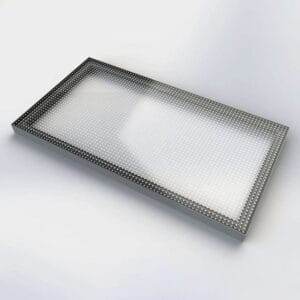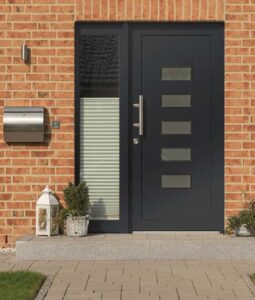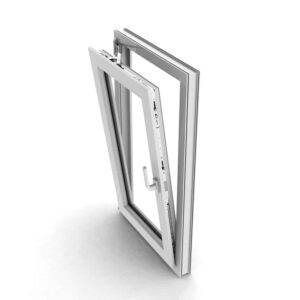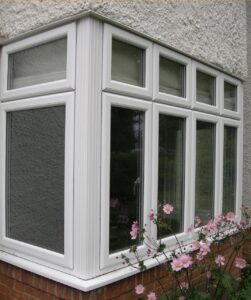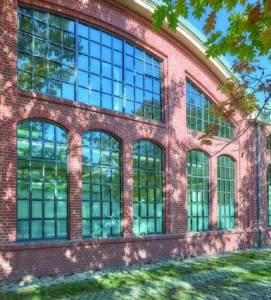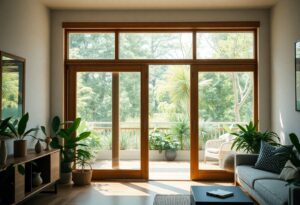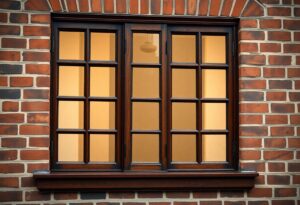Many homeowners underestimate the significance of high performance windows in enhancing energy efficiency and overall comfort. When choosing the right windows for your home, it’s crucial to consider features such as thermal insulation, solar heat gain, and air leakage ratings. These elements play a pivotal role in not only reducing your energy bills but also in contributing to a healthier indoor environment. By understanding these features, you can make an informed decision that will benefit your home for years to come.
Understanding High-Performance Windows
For those seeking enhanced energy efficiency and comfort in their homes, high-performance windows are an necessary consideration. These windows are designed with superior insulation, advanced glazing options, and innovative framing techniques that outperform standard windows. By minimising heat transfer and optimising natural light, they significantly contribute to energy savings and provide greater thermal comfort within your living space.
Definition and Overview
Above all, high-performance windows are built using advanced materials and technologies that set them apart from conventional windows. Their unique characteristics include better insulation properties, lower U-values, and reduced solar heat gain. You can enjoy benefits such as decreased energy bills, improved indoor comfort, and a reduced carbon footprint by choosing these windows.
| Feature | Benefit |
| Energy Efficiency | Lower energy bills |
| Comfort | Improved thermal comfort |
| Durability | Longer lifespan |
| Noise Reduction | Quieter living spaces |
Types of High-Performance Windows
With a growing variety of high-performance windows available, you can choose options that suit your needs. Options like triple-glazed windows, which provide superior insulation, low-E coatings that reflect infrared light, and argon gas fills that enhance thermal performance are all on the table. Each type works to minimise heat loss and gain, ensuring optimal energy efficiency. (Choosing the right type based on your climate can make a noticeable difference).
- Triple-glazed for maximum insulation
- Low-E coatings to minimise solar heat gain
- Argon gas fills for enhanced thermal performance
- Vinyl frames for durability
- Fibreglass frames for energy efficiency
The selection of the right types of high-performance windows can impact your home’s energy savings and overall comfort significantly.
| Type | Feature |
| Triple-Glazed | Exceptional insulation |
| Low-E Coatings | Reduced UV damage indoors |
| Argon Gas Fills | Improved energy efficiency |
| Vinyl Frames | Low maintenance |
High-performance windows are an investment in your comfort and energy efficiency. You’ll discover that each type boasts its own advantages, ensuring that you can find the perfect fit for your home. (Selecting the most suitable window type is important for maximising benefits).
- Adaptable styles for various architectural designs
- Multiple finishes to enhance aesthetics
- Energy Star ratings for compliance
- Custom sizes for unique requirements
- Professional installation for optimal performance
The benefits of high-performance windows are substantial, leading to long-term savings and improved quality of life.
Key Features to Consider
Any homeowner looking for high performance windows should focus on key features that enhance functionality and efficiency. Look for:
- U-factor for thermal insulation
- Solar Heat Gain Coefficient (SHGC) for sunlight management
- Air leakage rating for maintaining indoor climate
- Durability of materials used
- Low-E coating for UV protection
- Frames and spacers for structural integrity
Perceiving these attributes will assist you in making an informed choice.
Thermal Performance
Among the most significant metrics for assessing thermal performance are the U-factor and Solar Heat Gain Coefficient (SHGC). The U-factor measures the heat transfer through the window, while SHGC indicates the amount of solar heat that enters your home. To select windows effectively, aim for a low U-factor for better insulation and an appropriate SHGC based on your climate; lower values are preferable in warmer regions.
Air Leakage and Weatherization
Before purchasing, consider the air leakage ratings of your window options, as they significantly impact energy efficiency. Weatherization features, such as weatherstripping and insulated frames, contribute to minimising drafts and reducing energy costs. Evaluate how different windows seal against air infiltration and look for certifications to ensure optimal performance.
This is particularly important because excessive air leakage can lead to higher energy bills and reduced comfort in your home. Always look for windows with a low air leakage rating, ideally below 0.3 cfm/ft². Additionally, investing in proper weatherization materials can considerably enhance the energy efficiency of your windows. By paying attention to these factors, you can ensure a durable, efficient, and comfortable living space.
Impact of Frame Materials
If you are considering high-performance windows, the frame materials you choose significantly impact their efficiency. Different materials offer varied thermal conductivity and maintenance requirements. For instance, wood provides excellent insulation but needs regular upkeep to prevent rot. Vinyl is low-maintenance and energy-efficient, yet may lack the aesthetic appeal of other options. Aluminium is strong and durable but can conduct heat, requiring thermal breaks to boost performance.
Wood, Vinyl, and Aluminum
Above all, wood is renowned for its aesthetic beauty and natural insulation properties, but it demands regular maintenance to avert decay. Vinyl frames, in contrast, require minimal care and have high energy efficiency due to their poor thermal conductivity. However, they may lack the varied texture and colour options found in wood. Lastly, aluminium frames are robust and long-lasting but typically require thermal breaks to enhance their energy performance as they tend to conduct heat readily.
Composite Frames
Impact of composite frames is significant as they bring together the best attributes of different materials. Their innovative design offers outstanding thermal performance and durability, successfully mimicking the appearance of wood with far less upkeep. You will find that composite frames outperform traditional materials, making them an ideal choice for modern high-performance windows.
Vinyl frames integrate various materials to improve both thermal efficiency and durability. This emerging trend combines the strength and moisture resistance of synthetic elements with traditional aesthetics, presenting lower maintenance demands than wood. By opting for composite frames, you will enjoy enhanced insulation without compromising on style or requiring rigorous upkeep, positioning them as a wise investment in high-performance windows.
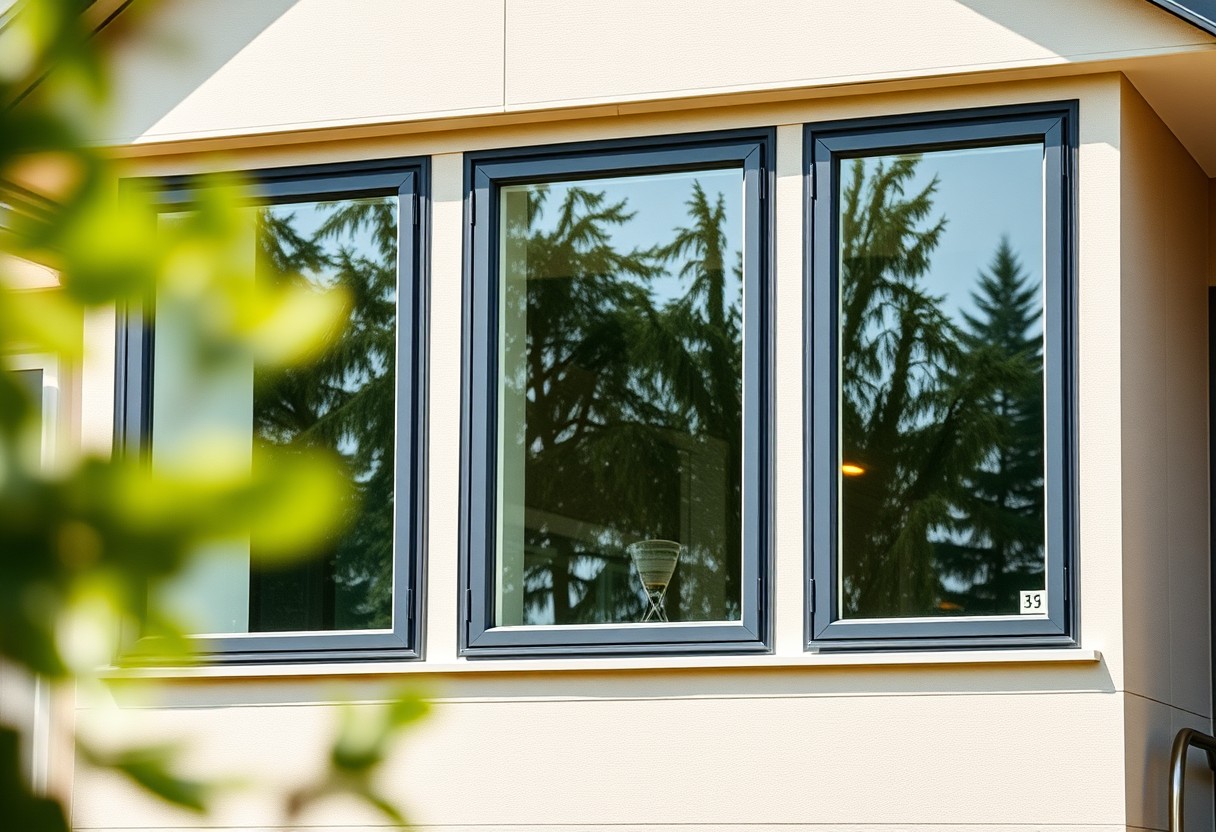
Window Styles and Aesthetic Considerations
Not all window styles are created equal, and the aesthetic you choose can significantly impact your home’s overall appearance and energy efficiency. The right style enhances your property’s beauty while ensuring optimal performance based on regional climate conditions. Styles such as casement, double-hung, and sliding windows each have their unique characteristics that cater to various aesthetic preferences.
Types of Window Styles
One of the most important decisions you’ll make relates to the types of window styles you wish to incorporate. The following table outlines different styles and their impact on performance:
| Window Style | Performance Influence |
| Casement | Excellent ventilation, great for windy areas |
| Double-Hung | Versatile with effective insulation |
| Sliding | Easier access in smaller spaces |
| Bay | Increases natural light and enhances aesthetics |
| Picture | Great for views and minimal air leakage |
Perceiving the various styles and their attributes helps you align your aesthetic preferences with functional needs.
Customization Options
Above selecting a window style, the customization options available allow you to further enhance both aesthetics and energy performance. You can choose from different materials, colours, and finishes that complement your home’s character while ensuring energy efficiency.
Considering the breadth of customization possibilities means you can tailor solutions to fit your specific needs. From energy-efficient glazing to frame materials that stand up to harsh weather, the choices you make can have a significant impact on both the appearance and efficiency of your windows. Be sure to prioritise options that reflect your style while maintaining high energy performance to enhance your living space.
Installation and Maintenance Best Practices
Many homeowners overlook the importance of proper installation and maintenance when it comes to high-performance windows. To boost home comfort with high-performance windows, ensure that professionals carry out the installation. Choosing a qualified installer can guarantee correct sealing and fitting, protecting your investment and maintaining the warranty. (Selecting an experienced installer can save you future costs due to improper installation.)
Professional Installation Benefits
One of the most important aspects of achieving high performance in your windows is professional installation. Skilled installers ensure that windows are properly aligned and sealed, which can significantly reduce air leaks and improve energy efficiency. When dicking out an installer, check their credentials, reviews, and past projects. (A well-installed window not only enhances comfort but also prolongs its lifespan.)
Regular Maintenance
The longevity and performance of your high-performance windows rely on regular maintenance practices. Make it a habit to clean the glass and frames to prevent build-up, and conduct inspections for any damage or wear. Address any issues promptly to maintain efficiency. (Investing time in maintenance can prevent costly repairs in the future.)
Considering regular maintenance is key to ensuring your high-performance windows continue to function at their best. Schedule annual inspections to check for any *damaging cracks*, *misalignments*, or *deteriorating seals*. Keep the tracks clean and free from debris, and lubricate moving parts as needed to promote *optimal performance*. (Committing to consistent upkeep is necessary for maximising your investment.)
Cost Considerations and Return on Investment
Your investment in high-performance windows goes beyond the initial outlay. While the upfront costs may be higher than standard windows, the long-term savings on energy bills can often offset this difference. These energy-efficient windows significantly reduce heating and cooling costs, providing you with a beneficial return on your investment over time.
Initial Costs vs. Long-Term Savings
Costs associated with high-performance windows tend to be higher than those of standard options due to advanced materials and technologies used. However, their superior insulation properties can lead to significant reductions in your energy bills over the years. This means that while you may pay more initially, you can enjoy considerable savings in the long run, making them a wise financial choice.
Incentives and Rebates
At times, upgrading to high-performance windows can become more affordable, thanks to various government incentives and rebates. These programs are designed to encourage energy efficiency and may help you recoup some of your initial investment while promoting sustainable practices.
LongTerm, many homeowners do not realise that various local and national incentives exist, offering cash rebates or tax deductions for your upgrade to high-performance windows. Researching these options can significantly offset your costs and enhance the overall feasibility of the investment. Make sure to investigate available rebates in your region to maximise your return and encourage energy-efficient practices in your home.
To wrap up
Presently, when considering high-performance windows, it is imperative for you to focus on key features such as energy efficiency, thermal insulation, and durability. Look for double or triple glazing, low-emissivity coatings, and quality framing materials to enhance your home’s comfort and efficiency. These attributes not only improve your living environment but can also lead to long-term savings on energy bills. For instance, there is no need for a gaming computer to run high… windows, as proper selection aligns with your needs and budget.
FAQ
Q: What are high performance windows?
A: High performance windows are specially designed to enhance energy efficiency and improve comfort in a building. They incorporate advanced technologies, including multiple panes of glass, low emissivity (Low-E) coatings, and argon or krypton gas fills between the panes, which collectively reduce heat transfer and improve insulation.
Q: How do Low-E coatings benefit high performance windows?
A: Low-E coatings are thin, transparent films applied to the glass surface. They reflect heat back into the room during winter and block excessive heat from the sun in summer. This feature significantly reduces energy costs by maintaining comfortable indoor temperatures while allowing natural light to enter.
Q: What is the significance of multi-pane glass in high performance windows?
A: Multi-pane glass, such as double or triple-glazing, increases the insulating properties of windows. Each layer of glass provides additional barriers to heat transfer, which can lead to a reduction in energy consumption for heating and cooling. This design also helps to minimise noise pollution from outside.
Q: How does frame material impact the performance of windows?
A: The material of the window frame plays a vital role in overall performance. Options such as vinyl, fibreglass, and wood are popular due to their durable and insulating properties. The right choice can enhance thermal performance and reduce condensation, ultimately contributing to lower energy bills.
Q: What features should I look for concerning the window’s energy efficiency ratings?
A: When evaluating energy efficiency, look for the U-factor, which measures the rate of heat transfer (the lower, the better), and the Solar Heat Gain Coefficient (SHGC), which indicates how much solar heat is absorbed. Additionally, ensure that the windows comply with ENERGY STAR® ratings for optimal performance.
Q: Are high performance windows worth the investment?
A: Investing in high performance windows can lead to significant long-term savings through reduced energy bills and improved indoor comfort. While the initial costs may be higher than standard windows, the benefits of lower heating and cooling costs, increased property value, and potentially longer lifespan make them a sound financial decision.
Q: What maintenance do high performance windows require?
A: High performance windows typically require minimal maintenance, depending on the frame material. Regular cleaning of the glass and frame, checking seals for signs of wear, and ensuring hinges and locks function properly can help maintain their efficiency and appearance over time.

